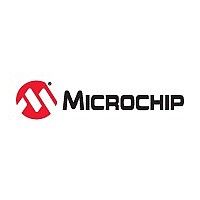PIC16C73A-04/SP Microchip Technology Inc., PIC16C73A-04/SP Datasheet - Page 79

PIC16C73A-04/SP
Manufacturer Part Number
PIC16C73A-04/SP
Description
28 PIN, 7 KB OTP, 192 RAM, 22 I/O
Manufacturer
Microchip Technology Inc.
Datasheet
1.PIC16C73A-04SP.pdf
(289 pages)
Specifications of PIC16C73A-04/SP
A/d Inputs
5-Channel, 8-Bit
Cpu Speed
5 MIPS
Eeprom Memory
0 Bytes
Input Output
22
Interface
I2C/SPI/USART
Memory Type
OTP
Number Of Bits
8
Package Type
28-pin SPDIP
Programmable Memory
7K Bytes
Ram Size
192 Bytes
Speed
4 MHz
Timers
2-8-bit, 1-16-bit
Voltage, Range
2.5-5.5 V
Lead Free Status / Rohs Status
RoHS Compliant part
Electrostatic Device
- Current page: 79 of 289
- Download datasheet (3Mb)
FIGURE 11-2: SSPCON: SYNC SERIAL PORT CONTROL REGISTER (ADDRESS 14h)
1997 Microchip Technology Inc.
bit7
bit 7:
bit 6:
bit 5:
bit 4:
bit 3-0: SSPM3:SSPM0: Synchronous Serial Port Mode Select bits
WCOL
R/W-0
WCOL: Write Collision Detect bit
1 = The SSPBUF register is written while it is still transmitting the previous word
(must be cleared in software)
0 = No collision
SSPOV: Receive Overflow Detect bit
In SPI mode
1 = A new byte is received while the SSPBUF register is still holding the previous data. In case of overflow,
the data in SSPSR register is lost. Overflow can only occur in slave mode. The user must read the SSP-
BUF, even if only transmitting data, to avoid setting overflow. In master mode the overflow bit is not set
since each new reception (and transmission) is initiated by writing to the SSPBUF register.
0 = No overflow
In I
1 = A byte is received while the SSPBUF register is still holding the previous byte. SSPOV is a "don’t care"
in transmit mode. SSPOV must be cleared in software in either mode.
0 = No overflow
SSPEN: Synchronous Serial Port Enable bit
In SPI mode
1 = Enables serial port and configures SCK, SDO, and SDI as serial port pins
0 = Disables serial port and configures these pins as I/O port pins
In I
1 = Enables the serial port and configures the SDA and SCL pins as serial port pins
0 = Disables serial port and configures these pins as I/O port pins
In both modes, when enabled, these pins must be properly configured as input or output.
CKP: Clock Polarity Select bit
In SPI mode
1 = Idle state for clock is a high level. Transmit happens on falling edge, receive on rising edge.
0 = Idle state for clock is a low level. Transmit happens on rising edge, receive on falling edge.
In I
SCK release control
1 = Enable clock
0 = Holds clock low (clock stretch) (Used to ensure data setup time)
0000 = SPI master mode, clock = Fosc/4
0001 = SPI master mode, clock = Fosc/16
0010 = SPI master mode, clock = Fosc/64
0011 = SPI master mode, clock = TMR2 output/2
0100 = SPI slave mode, clock = SCK pin. SS pin control enabled.
0101 = SPI slave mode, clock = SCK pin. SS pin control disabled. SS can be used as I/O pin.
0110 = I
0111 = I
1011 = I
1110 = I
1111 = I
SSPOV
R/W-0
2
2
2
C mode
C mode
C mode
2
2
2
2
2
C slave mode, 7-bit address
C slave mode, 10-bit address
C firmware controlled Master Mode (slave idle)
C slave mode, 7-bit address with start and stop bit interrupts enabled
C slave mode, 10-bit address with start and stop bit interrupts enabled
SSPEN
R/W-0
R/W-0
CKP
72 73 73A 74 74A 76 77
Applicable Devices
SSPM3
R/W-0
SSPM2
R/W-0
SSPM1
R/W-0
SSPM0
R/W-0
bit0
W = Writable bit
U = Unimplemented bit,
- n =Value at POR reset
R = Readable bit
read as ‘0’
PIC16C7X
DS30390E-page 79
Related parts for PIC16C73A-04/SP
Image
Part Number
Description
Manufacturer
Datasheet
Request
R

Part Number:
Description:
28 PIN, 7 KB OTP, 192 RAM, 22 I/O
Manufacturer:
Microchip Technology Inc.
Datasheet:

Part Number:
Description:
Manufacturer:
Microchip Technology Inc.
Datasheet:

Part Number:
Description:
IC, 8BIT MCU, PIC16C, 40MHZ, DIP-18
Manufacturer:
Microchip Technology
Datasheet:

Part Number:
Description:
IC, 8BIT MCU, PIC16C, 4MHZ, DIP-28
Manufacturer:
Microchip Technology
Datasheet:

Part Number:
Description:
IC, 8BIT MCU, PIC16C, 4MHZ, DIP-28
Manufacturer:
Microchip Technology
Datasheet:

Part Number:
Description:
IC, 8BIT MCU, PIC16C, 4MHZ, DIP-40
Manufacturer:
Microchip Technology
Datasheet:

Part Number:
Description:
Manufacturer:
Microchip Technology Inc.
Datasheet:

Part Number:
Description:
Manufacturer:
Microchip Technology Inc.
Datasheet:

Part Number:
Description:
Manufacturer:
Microchip Technology Inc.
Datasheet:

Part Number:
Description:
Manufacturer:
Microchip Technology Inc.
Datasheet:

Part Number:
Description:
Manufacturer:
Microchip Technology Inc.
Datasheet:

Part Number:
Description:
Manufacturer:
Microchip Technology Inc.
Datasheet:










